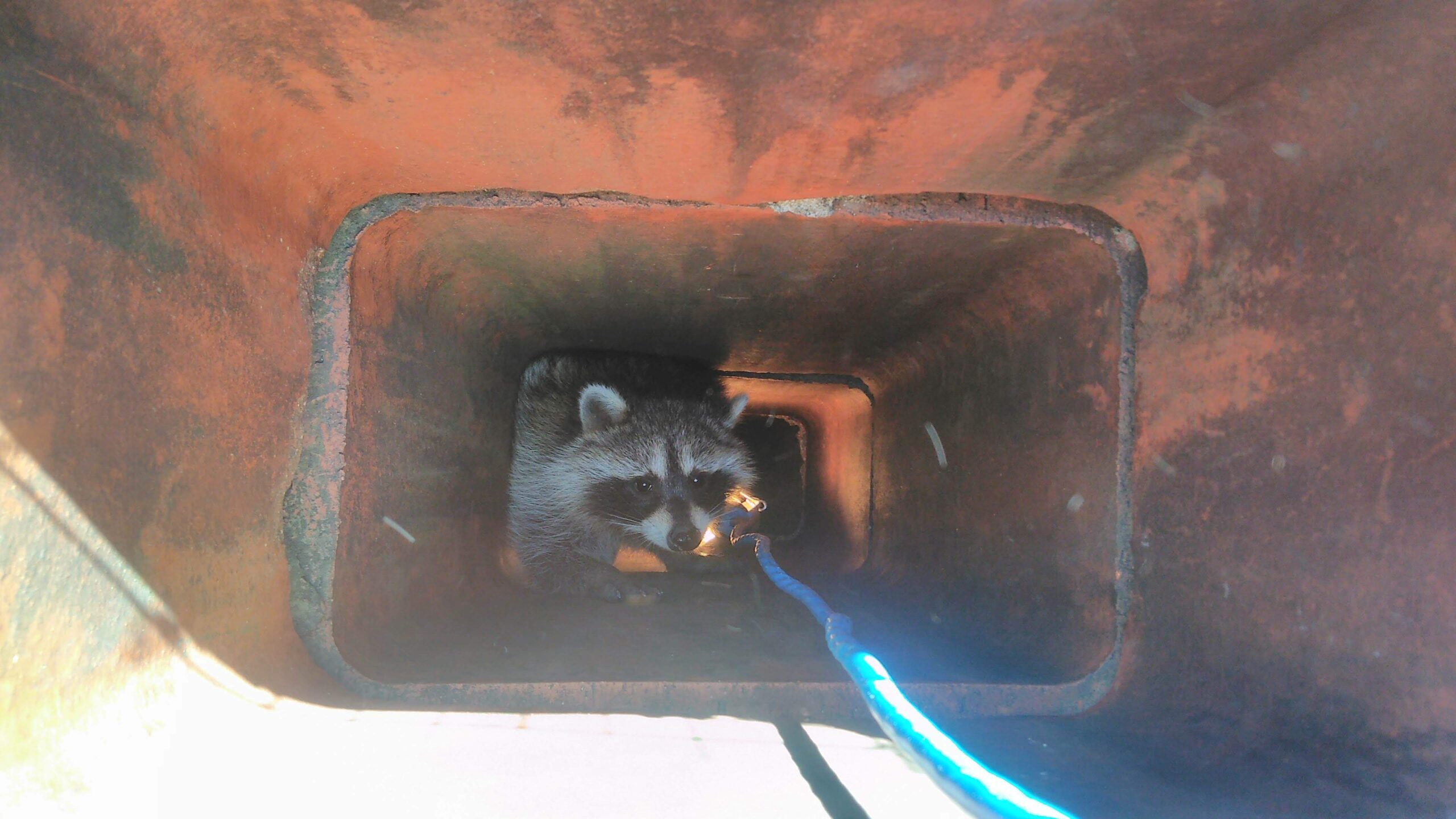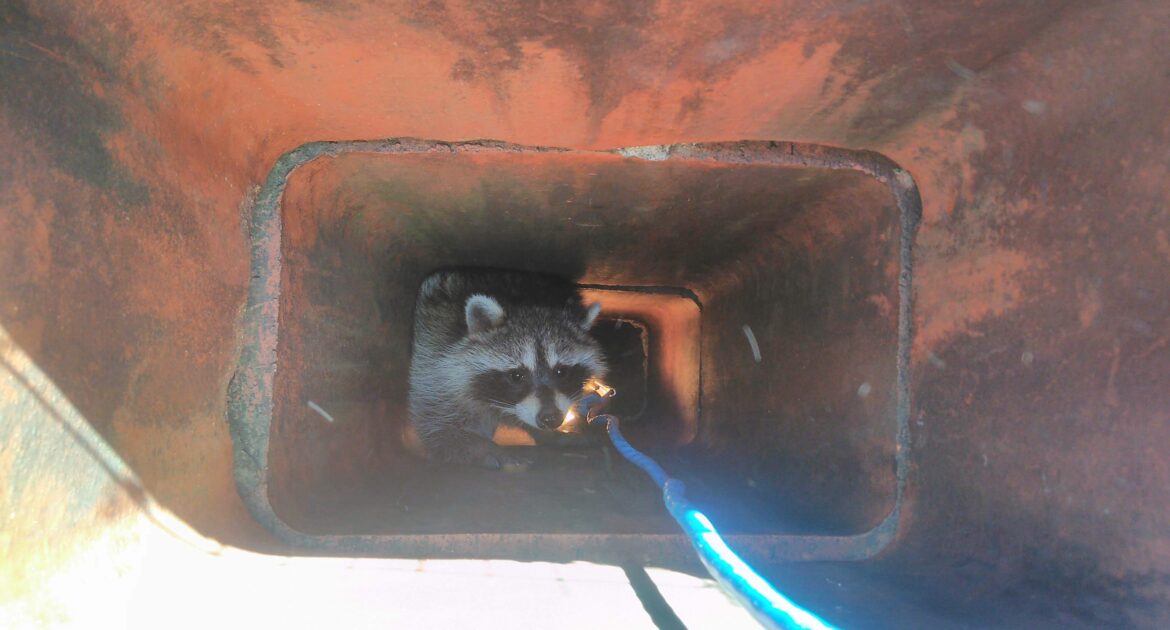Toronto winters can be harsh, and while snow blankets the city, not all wildlife truly takes a break. Though some animals hibernate to survive the colder months, raccoons don’t follow suit. Instead, they’ll often seek shelter in attics, basements, and garages, occasionally leading to uninvited issues in your home.
Knowing how raccoons behave during winter can help you act proactively to protect your space. That’s where indoor animal control tips become crucial, especially during the icy months in Toronto. Stay informed about how these clever animals adapt and why calling humane experts like Skedaddle Humane Wildlife Control can make all the difference.
Raccoons in Toronto Are Survivors, Not True Hibernators
Unlike bears or groundhogs, raccoons don’t experience full hibernation. Instead, they enter a state called torpor, where their activity levels decrease during extreme cold. This means that on warmer winter days, you might spot a raccoon emerging from its shelter to search for food. For Toronto homeowners, this behaviour often leads to encounters with raccoons nesting in attics or crawl spaces.
Why? Because raccoons, being intelligent and adaptive, prefer the comfort of warm, dry places such as homes over enduring the open elements. Once settled, they may even remain active enough to cause damage by chewing wires, tearing insulation, or contaminating spaces with waste.
When sharing your home isn’t an acceptable option, it’s important to rely on humane animal control in Toronto to address these issues effectively.
Are Raccoons in Your Home? Common Winter Signs to Watch For
During Toronto’s chilly months, raccoons search for shelter in urban areas. But how do you know if your home has become their new den? Here are some telltale signs to look out for:
- Noises in your attic or walls, especially at night, like thumping or scratching, as raccoons are nocturnal.
- Droppings around entryways or in the attic, which may carry harmful bacteria.
- Disturbed garbage bins or spillages near your property.
- Visible tracks in the snow near rooflines, sheds, or garages.
If you notice any of these signs, it’s critical to act promptly. Ignoring raccoon activity can lead to further damage or even health risks for your family. Skilled professionals, like the team at Skedaddle, specialize in humane animal control in Toronto and use exclusion methods to prevent raccoons from returning.
Indoor Animal Control Tips for Winter Months
Preventing raccoons from entering your property starts with proactive steps to secure your home. Here are four practical indoor animal control tips that can reduce the risks:
- Seal all possible entry points: Raccoons are known to enter through openings as small as 10 centimetres. Inspect places like roof vents, chimneys, and gaps under your porch.
- Secure your garbage bins: Raccoons are natural scavengers. Storing garbage in bins with locking lids or placing them inside sheds can limit their food options.
- Clean up food sources indoors and outdoors: Leftover pet food, birdseed spills, or even compost piles are potential lures for raccoons.
- Trim overhanging trees: Trees near your roofline give raccoons easier access to your attic. Regular maintenance can make a big difference.
These steps not only help minimize raccoon break-ins during winter but also support safe management during other seasons. Summertime, for example, highlights the importance of summer wildlife prevention strategies that ensure your home stays wildlife-free year-round.
Unique Raccoon Behaviour in Toronto Winters
Raccoons’ winter habits in Toronto distinguish them from other urban animals. Their ability to adapt to annual conditions makes them persistent visitors to many homes. For example:
- Raccoons mate in January and February, a time when they might already be using your attic as a den.
- Litters of babies, typically born between March and May, can create months-long activity within your home.
This cycle means that even a single winter visit could lead to a longer-term issue without intervention. Professional wildlife control ensures that animal barriers are installed and your home remains secure for future seasons.
Health and Safety Risks of Winter Raccoon Encounters
While raccoons may seem harmless from afar, their presence in your home could expose you to significant risks. For homeowners in Toronto, understanding these potential dangers is key:
- Health concerns: Raccoons can carry diseases, including rabies and raccoon roundworm. Both present health hazards that require professional attention.
- Structural damage: Left unchecked, raccoons can tear through drywall, insulation, or shingles in their effort to nest. Repairs can become costly without quick action.
Comparatively, replacing or repairing damaged areas, contamination cleaning, and reinstating proper insulation post-exclusion are all part of how experts like Skedaddle protect Toronto homes with humane methods.
Why Choose Humane Animal Control in Toronto?
Toronto prides itself on being an animal-conscious city. That’s why relying on qualified professionals for humane animal control in Toronto is the best route. Unlike outdated or harmful practices, humane removal ensures raccoons are excluded without stress to them or your home’s occupants.
Partnering with experts means:
- Advanced entry-point inspection and sealing techniques.
- Family-safe clean-up processes to remove waste or contaminants.
- Non-invasive deterrents proven to discourage future nesting.
Taking these steps offers long-term protection while respecting Toronto’s relationship with its urban wildlife. Plus, choosing humane practices reflects the values of our vibrant, eco-conscious community.
Winter or Summer, Raccoon Control Requires a Plan
While winter is a high-risk season for raccoon activity, it’s crucial to prepare for all seasons. Summer wildlife prevention is equally important, as raccoons remain opportunistic year-round. Preventing food sources and sealing entryways in advance keeps your home as safe in July as it is in January.
Toronto homeowners can rest easier knowing Skedaddle Humane Wildlife Control is fully prepared to guide you with both seasonal awareness and professional services that prioritize your home’s security while removing animals safely.
The Final Word on Winter Raccoon Removal in Toronto
Toronto winters may bring snow and frost, but they likely won’t mean a full break from raccoon activity. Unlike true hibernators, raccoons remain semi-active, seeking warmth and food when weather conditions allow. By implementing effective indoor animal control tips and working with humane professionals, you can protect your property from unwanted visitors this season.
If you’ve seen signs of raccoon activity or need help creating customized solutions, Skedaddle Humane Wildlife Control is here to assist. Contact our team today to make sure your home stays secure, warm, and raccoon-free all winter long.




